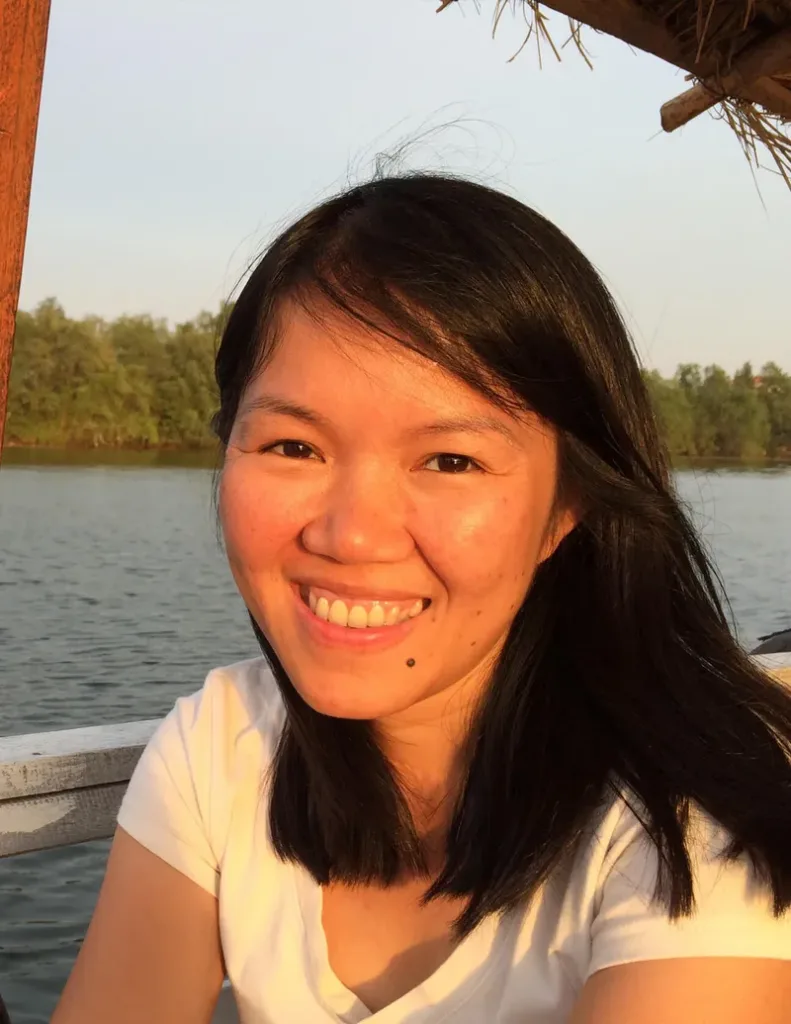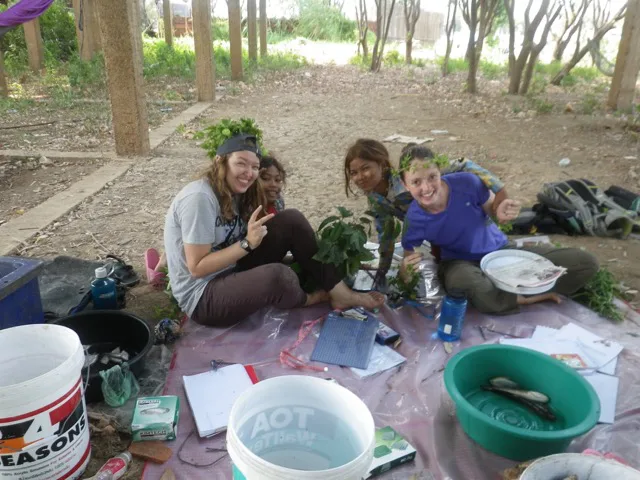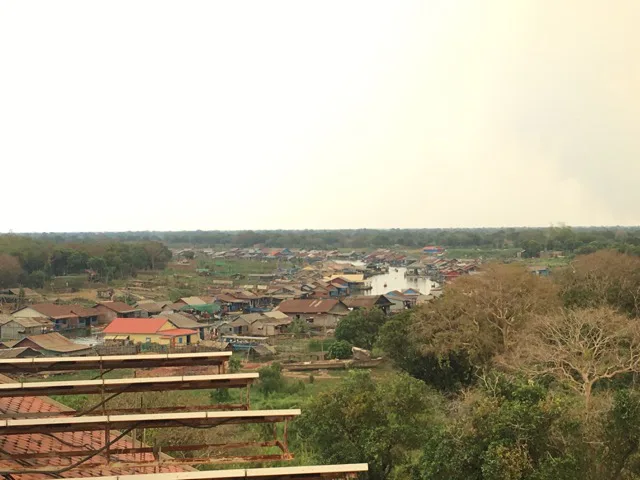
By: Chouly Ou, PhD
Reflections from the “Fish People”
Never have I ever gutted a fish while being turned into a forest nymph… until now.
This week, we are out in the field, collecting data for our Directed Research projects. For four of us, “the field” is Phnom Kulen, or Kulen Mountain. For myself and the other eight students, “the field” is Prek Toal floating village. My project is fish morphology—arguably the smelliest and messiest of the projects. Each day, Megan, the other student studying fish, and I sort and measure that day’s catch. We found out the first day that we had inadvertently chosen the local kids’ outdoor hangout as our temporary lab. Every day since then, they’ve come to frolic around a couple of beached boats and play with their newest attraction: us. Thus it was that we found ourselves adorned with crowns, bracelets, rings, and bouquets made from vines nearby, while other children reached out to poke the fish or play with the measuring tape.
If I’ve learned anything from data collection so far, it’s that there is no firm boundary between “scientific research” and “daily life.” Each DR project intersects with the other projects and, most importantly, with the lives of those around us. Last night, I went out on a boat with two students who are testing boat noise pollution. We watched as people got ready for bed, putting up mosquito nets and turning on the TV to wind down after a long day. Given our own experience the last few nights trying to sleep and the decibel readings we measured every time a boat drove by, we knew theirs would not be a restful night’s sleep.
Two other students are conducting research on crocodile farming and its popularity in the village, which is an especially important source of income as fish catch decreases in the Tonle Sap Lake. Farmers often mention that they have to buy fish and feed for the crocodiles from Thailand or elsewhere–a result of decreased fish catch during the dry season and increased regulations on local conservation areas. Three of us are studying governance in the Prek Toal area, looking especially at environmental education, local knowledge, and practice surrounding a local conservation area. The importance of this knowledge is especially relevant as villagers are still fishing significantly in the protected area.
As for us “fish people”, we can see the importance of our work when the fish we are eating at lunch looks awfully familiar. It is difficult to overstate the importance of the waterways and fishing on the livelihoods of people in Prek Toal. The Tonle Sap alone provides the majority of protein intake for 50 million people in the Mekong River Basin and as lake levels decrease and climate change impacts become more apparent, these changes affect all of our research subjects. Fish assemblage and morphology, crocodile farming, conflicts between stakeholders over resources… these issues extend beyond our short time in the field.
Yesterday, one local girl stuck around longer than anyone else, handing me newspapers and scalpels, and squatting next to me watching intently as I measured. I stumbled through my Khmer to ask her age (13), but didn’t quite have the language skills to communicate what I really wanted to. I handed her the fish and the measuring tape and gestured, hoping she would understand that I wanted her to help, to be involved. As important as DR is to each of us as students and actors in the world, for this young girl the stakes are much higher. Try as we might to draw a line between the subjective “real world” and the objective world of “science”, science is most powerful when we recognize the impacts it can have—and needs to have—on the lives of people. I’m incredibly grateful to SFS and the directed research experience for embracing this lesson wholeheartedly, and I can’t wait to return to the field tomorrow, for more fish and (hopefully) for more flower crowns.


Related Posts

Restoration on a Cinder Cone: A Syntropic Story

